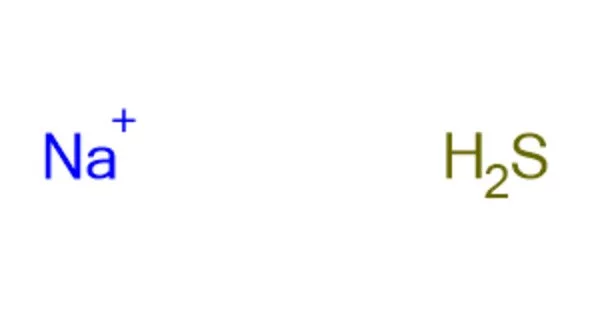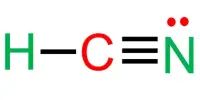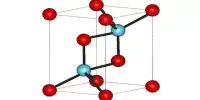Sodium polysulfide is a general term for salts with the formula Na2Sx, where x = 2 to 5. It is a yellow-to-red solid that is soluble in water and can be prepared by treating sodium sulfide with elemental sulfur. The properties of sodium polysulfide can vary depending on the specific degree of sulfuration and other factors. It is soluble in water, and its solubility increases with higher degrees of sulfuration. The solubility in organic solvents is generally low.
In principle, but not in practice, the chain lengths could be longer. The salts are dark red solids that dissolve in water to give highly alkaline and corrosive solutions. In air, these salts oxidize, and they evolve hydrogen sulfide by hydrolysis.
Production and occurrence
Sodium polysulfide can be produced by dissolving sulfur in a solution of sodium sulfide. Alternatively, they are produced by the redox reaction of aqueous sodium hydroxide with sulfur at elevated temperatures. Finally, they arise by the reduction of elemental sulfur with sodium, a reaction often conducted in anhydrous ammonia.
These salts are used in the production of polysulfide polymers, as a chemical fungicide, as a blackening agent on copper jewelry, as a component in a polysulfide bromide battery, as a toner in a photochemical solution, and in the tanning industry to remove hair from hides.
Reactions
As exploited in the sodium-sulfur battery, the polysulfides absorb and release reducing equivalents by breaking and making S-S bonds, respectively. An idealized reaction for sodium tetrasulfide is shown:
Na2S4 + 2 Na ⇌ 2 Na2S2
Alkylation gives organic polysulfides according to the following idealized equation:
Na2S4 + 2 RX → 2 NaX + R2S4
Alkylation with an organic dihalide gives polymers called thiokols.
Protonation of these salts gives hydrogen sulfide and elemental sulfur, as illustrated by the reaction of sodium pentasulfide:
Na2S5 + 2 HCl → H2S + 4 S + 2 NaCl
Applications
- Chemical Industry: It is used in the chemical industry as a reducing agent and as a source of sulfur in the synthesis of other sulfur-containing compounds.
- Mining: It is employed in the mining industry for mineral flotation. In this process, sodium polysulfide is used to activate certain minerals and make them more amenable to separation from other minerals in the ore.
- Textile Industry: It is utilized in the textile industry as a reducing agent in the preparation of indigo dye.
- Analytical Chemistry: It can be used in analytical chemistry for the determination of certain metals.
- Wastewater Treatment: In some cases, it has been explored for its potential use in wastewater treatment.
Safety
It’s important to note that sodium polysulfide is a reactive compound, and handling it requires appropriate precautions. Additionally, the specific properties and applications can vary depending on the exact form and concentration of sodium polysulfide used. As with any chemical compound, it is crucial to follow safety guidelines and handle it with care.
















